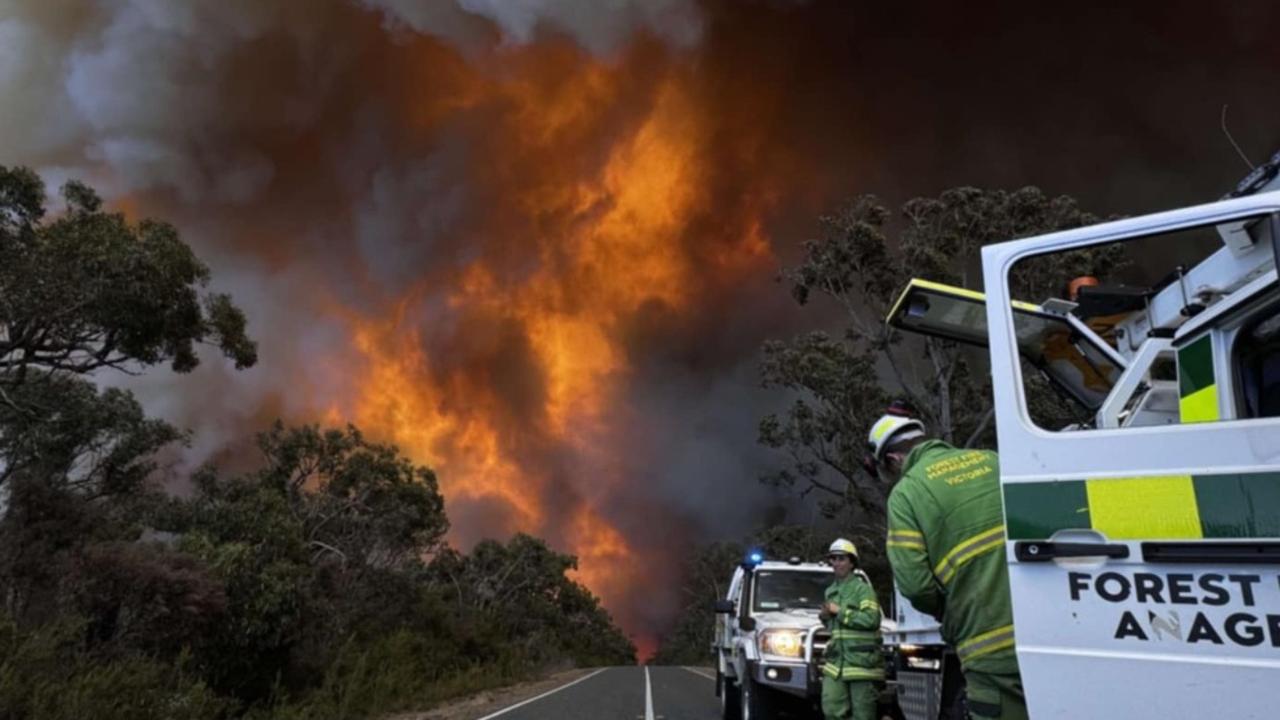Anthony Albanese rules out road user charges ahead of 2025 federal election
People who can’t afford more fuel-efficient cars will continue to be disadvantaged until the tax system is overhauled.
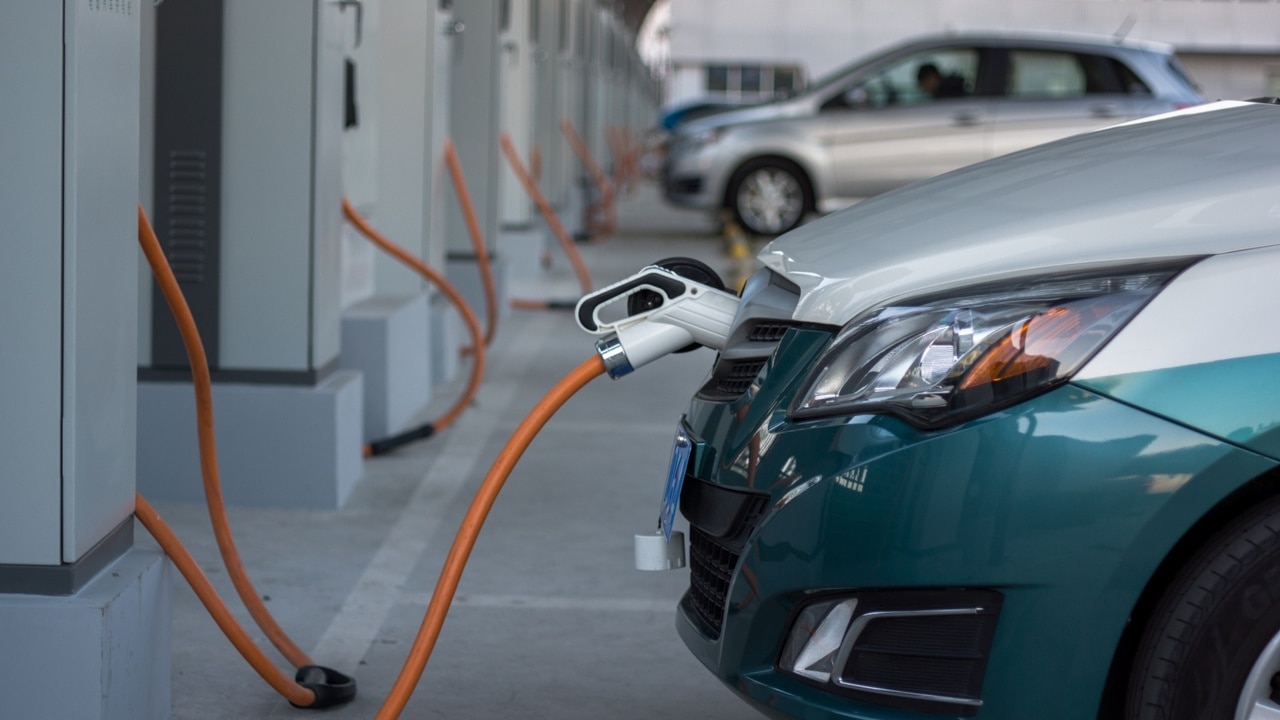
Victoria
Don't miss out on the headlines from Victoria. Followed categories will be added to My News.
The Albanese government has ruled out taking a road user charge that would make electric vehicle owners pay to build and maintain roads to the next federal election.
The decision flies in the face of mounting pressure from automotive groups to treat motorists more fairly and recoup lost fuel excise revenue as more Australians buy EVs.
Australian motorists paid an estimated $15.7bn in fuel excise in 2023-24, with petrol car owners currently slugged 50.6 cents for every litre of fuel purchased.
Just over half of the excise is put towards fixing roads.
But EV drivers have been getting a free ride since the High Court last year ruled that Victoria’s distance-based EV charge was unconstitutional.
This means that people who can’t afford to upgrade to more fuel-efficient cars, have fewer public transport options, and live in regional and remote areas are disadvantaged until the taxation system is overhauled.
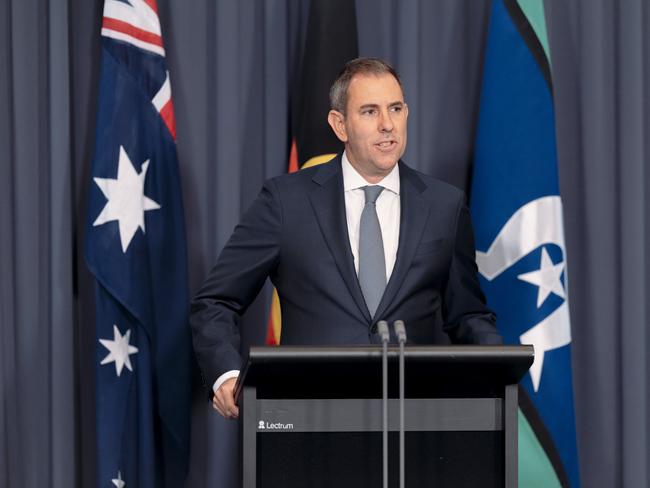
A spokesperson for Treasurer Jim Chalmers said: “We’re working with the states and territories on long-term options in light of the ‘Vanderstock’ High Court decision”.
However, the Herald Sun can reveal the federal government will not take a policy to next year’s election.
Opposition transport spokeswoman Bridget McKenzie accused the Albanese government of stalling development of a national system.
“This is one of those reforms that is just too hard for Dr Chalmers, who wanted to model himself on Paul Keating,” Senator McKenzie said.
“Fundamentally, anyone who drives on the road network should contribute to the construction and maintenance of those roads.”
Senator McKenzie said the Coalition would take a “principles-based approach” to any future consideration of road user charges.
“It must be fair and equitable, especially considering low income earners,” she said.
“It should not penalise Australians for choosing the vehicle they want and need to drive.”
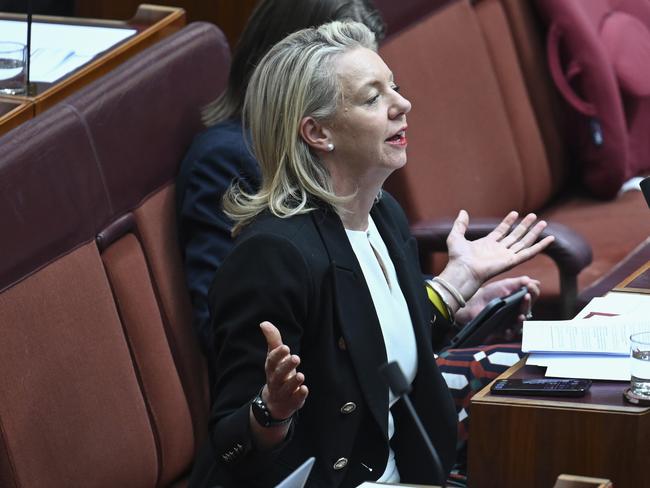
Australian Automotive Association managing director Michael Bradley said Australia needed to review the transport taxation system and work toward a national, technology-neutral road-user charge.
“As an interim step to a broader road-user charging scheme encompassing all vehicles, the AAA believes that zero and low-emissions vehicles should be brought into the road tax system, initially at a discounted rate to avoid disincentivising their uptake,” Mr Bradley said.
“The revenue from a road-user charge on zero and low-emission vehicles should be directed to land transport infrastructure funding, including for EV charging in locations where return on investment is insufficient to be serviced by commercial providers alone.”
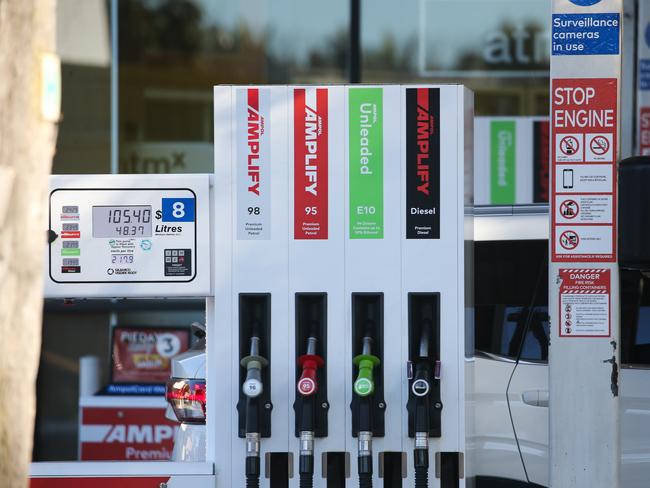
Forecast revenue from the excise on petrol was downgraded 1.4 per cent, or $100m, to $7.2bn this financial year in the government’s mid-year budget update.
The Parliamentary Budget Office estimates that fuel excise revenue could plummet to “effectively zero” over the next 25 years if 97 per cent of light passenger vehicles are electric, as forecast, come 20250.
Almost one in 10 new car sales are EVs, according to a new Electric Vehicle Council report, which shows a 150 per cent rise over the past two years.
NSW had planned to introduce road-user charges for EV owners in 2027.
jade.gailberger@news.com.au
Originally published as Anthony Albanese rules out road user charges ahead of 2025 federal election
Read related topics:Anthony Albanese



